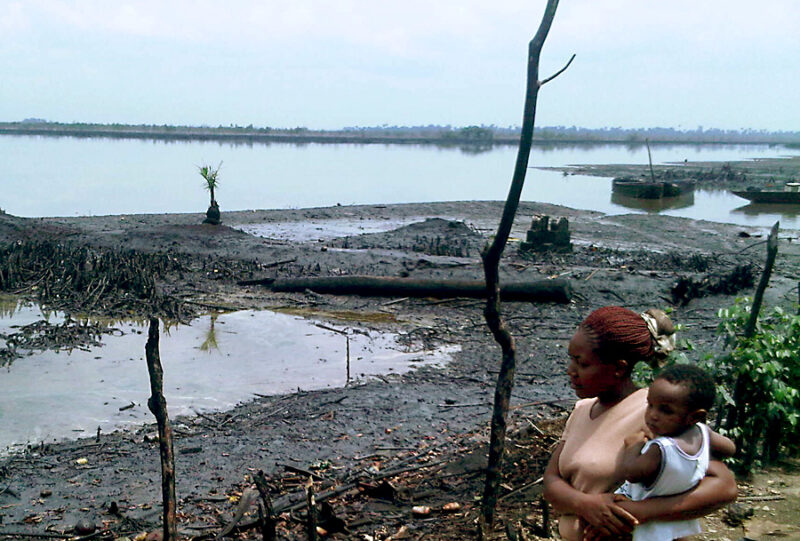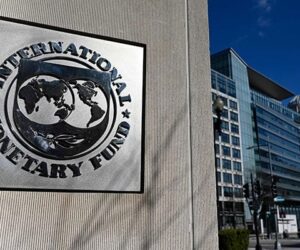Some experts at the United Nations on Sunday said that recent sale of oil assets by International Oil Companies (IOCs) in Nigeria “lacked transparency,” raising concerns about human rights impacts and hindering efforts to clean up pollution and compensate communities.
A statement by the Polluter Pays Project, a non-profit organisation that works to ensure that the oil and gas industry cleans up its mess, disclosed that the UN experts made their position known in letters addressed to Shell, Eni, ExxonMobil and TotalEnergies.
The letters confirmed responsibility by the oil companies for historic pollution and accused the companies of using “Nigeria as an experiment for divestment without clean-up”, the non-profit said.
Legal experts at Polluter Pays Project said the unprecedented intervention from seven UN human rights mandate holders, strengthens existing legal cases against the oil companies, and sends a clear warning to governments to block future oil asset sales unless clear plans are in place to rectify damage companies have caused.
The statement said United Nations Working Group on Business and Human Rights, and six other UN Special Rapporteurs, including for human rights in the context of climate change and toxics, wrote to four international energy companies and their five host governments – the UK, USA, France, Italy, and the Netherlands – as well as the Nigerian government.
The experts expressed “grave concern about the impact on human rights” of the divestments and said they were conducted “without following a human rights-based approach and against international law obligations.”
The letters were published on the UN’s website on 31 August, after letter recipients were given 60 days to respond.
Divestment
In recent years, international oil companies (IOCs) operating in Africa have been moving to sell off some of their assets and relocate to more profitable, environmentally friendly operational landscapes.
While some considered moving from one jurisdiction to another within the country and indeed the continent, others contemplated a complete exit away from the country and Africa.
Last October, the Nigerian government approved four major oil divestments including the sale of ExxonMobil onshore assets to Seplat Energy, more than two years after the deal was first secured.
The transactions, according to the regulator, are Mobil Producing Nigeria Unlimited (MPNU) to Seplat Energy Offshore Limited; Equinor Nigeria Energy Company Limited to Project Odinmin Investments Limited; Nigerian Agip Oil Company Limited to Oando Petroleum; and Natural Gas Company Limited and TotalEnergies EP Nigeria Limited to Telema Energies Nigeria Limited.
On Sunday, Polluters Pays Project said the four oil companies mentioned in the statement have been active in Nigeria since the 1950s, making billions of dollars in profit and causing toxic oil spills that have significantly harmed local communities and the environment.
“Repairing the damage is estimated to cost at least $12bn in just one of the nine Niger Delta states where the oil companies have been active,” it said.
“With oil reserves shrinking, the international oil companies have sold their assets to local buyers, in an apparent attempt to pass on clean-up costs. Shell’s Nigerian subsidiary was sold to the Renaissance group – a consortium of African based companies run by former Shell staff – despite Nigeria’s regulator initially blocking the sale after civil society groups raised concerns that the new company did not have the required resources to clean up the damage.”
Under the United Nations Guiding Principles on Business and Human Rights (UNGPs), it argued that companies have duties to respect human rights, offer a remedy to people affected by their operations, and to use leverage to prevent human rights abuses in dealings with third parties.
States also have obligations under international human rights law to ensure that companies comply with their duties to respect human rights, known as the “duty to regulate”.
Pollution
In many parts of Nigeria’s Delta region, especially in Ogoniland, fossil fuel pollution has been recorded in communities over the past three decades, forcing the Nigerian government and other stakeholders to initiate a $1 billion cleanup and restoration programme in 2018.
The cleanup programme followed a comprehensive study conducted by the United Nations Environment Programme in 2011.
Although remediation/restoration effort is being carried out by the Hydrocarbon Pollution Remediation Project (HYPREP), an agency of the government domiciled at the Federal Ministry of Environment, the impact of the cleanup initiative remains largely negligible, as major oil pipelines traversing these communities frequently leak, resulting in spills that continue to harm the environment.
A PREMIUM TIMES’ report recently captured the plight of farmers and fishermen in the communities.
READ ALSO: No region playing second fiddle under Tinubu – FG
In a statement Sunday, Sophie Marjanac, director of Legal Strategy, Polluter Pays Project, said, “The people of the Niger Delta have been slowly poisoned by the effects of oil extraction and many have had their livelihoods destroyed.
This UN intervention strengthens the hands of Nigerians that are taking the oil companies to court – like the Billie, Ogale and Bodo communities – as it makes it clear the firms have legal obligations to rectify the human rights abuses they’ve caused.
“The sales should not have been allowed to go ahead without comprehensive clean up plans in place. But now that they have, the governments where the oil companies are headquartered and the Nigerian government should urgently intervene with each company to ensure due diligence was followed, and that sufficient funds have been provided to Nigerian authorities in respect of historic liability. States have a legal duty to regulate to protect human rights, and must not let the oil companies off the hook.”











